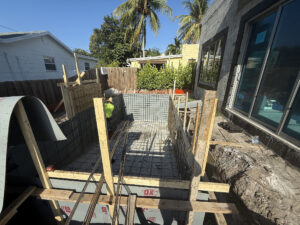Swimming pool maintenance involves keeping the water chemically balanced and ensuring proper filtration. Pool filters are vital in keeping your pool water clean and impurities-free. In this comprehensive guide, we will explore the functions of pool filters, the different types available, the impact of dirty filters, signs indicating the need for servicing, and step-by-step instructions on maintaining them.
To learn more about the basics of pool filters and their maintenance, you can refer to Swim University’s guide. It covers the role of pool filters in keeping your pool clean, the functions of different types of pool filters (cartridge filters, DE filters, and sand filters), the consequences of dirty filters, signs indicating the need for servicing, and step-by-step instructions on maintaining pool filters.
We will also highlight the importance of regular filter servicing and deep cleaning and introduce Finn’s Pool Services as a trusted partner in maintaining your pool filter system.
The Role of Pool Filters in Keeping Your Pool Clean
A sparkling pool begins with an efficient filtration system. The primary role of pool filters is to remove various impurities from the water, such as dirt, leaves, debris, and even microscopic particles. These impurities accumulate without a reliable pool filter, leading to cloudy water, reduced water quality, and potentially harmful swimming conditions.
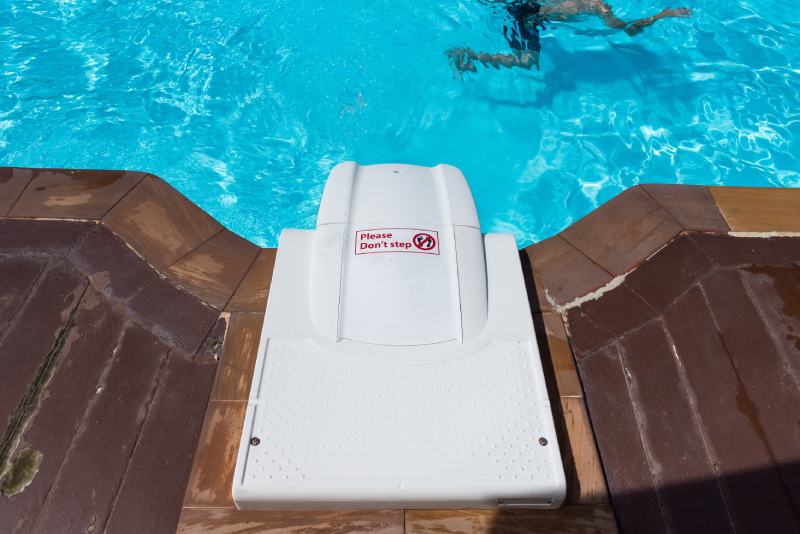
The Function of Different Types of Pool Filters
Pool filters come in three main types: cartridge filters, diatomaceous earth (DE) filters, and sand filters. Each type operates differently but shares the goal of maintaining clean and clear pool water. You can learn more about the basics of pool filters and their maintenance here.
Cartridge filters are famous for their ease of use and effectiveness. They consist of a pleated fabric cartridge that traps impurities as the water passes through. Cartridge filters require periodic cleaning and replacement to ensure optimum filtration.
Diatomaceous earth (DE) filters use fine powder from fossilized diatoms to filter out impurities. The DE powder coats a series of grids inside the filter, forming a filtration layer. As water flows through the grids, impurities are captured, resulting in pristine water. Regular backwashing and occasional DE powder replacement are necessary for DE filters.
Sand filters use a bed of specially graded sand as the filtration medium. Water enters the filter and passes through the sand bed, trapping debris and contaminants. Periodic backwashing is required to flush out the trapped particles and maintain filter efficiency.
The Impact of Dirty Pool Filters
A dirty or poorly maintained pool filter can have several negative consequences:
- It can lead to cloudy water, diminishing the visual appeal of your pool.
- It can result in inefficient circulation, causing poor water flow and uneven distribution of chemicals.
- A malfunctioning filter can strain the pool pump, potentially leading to damage and costly repairs.
Therefore, keeping your pool filters clean and in optimal condition is crucial. Learn more about the importance of maintenance.
Recognizing When Your Pool Filter Needs Servicing
Regular maintenance and timely servicing of your pool filter are essential to ensure its longevity and proper functioning. Recognizing the signs of a struggling filter can prevent potential damage and maintain a safe and clean swimming environment. Here’s a comprehensive guide to identifying common pool issues and how to fix them.
Reading the Pressure Gauge: A Key Indicator of Filter Health
The pressure gauge on your pool filter provides valuable information about its condition. A sudden rise in pressure beyond the normal operating range indicates a potential clog or dirty filter. Monitoring the pressure gauge regularly allows you to detect filter issues early on and take appropriate action.
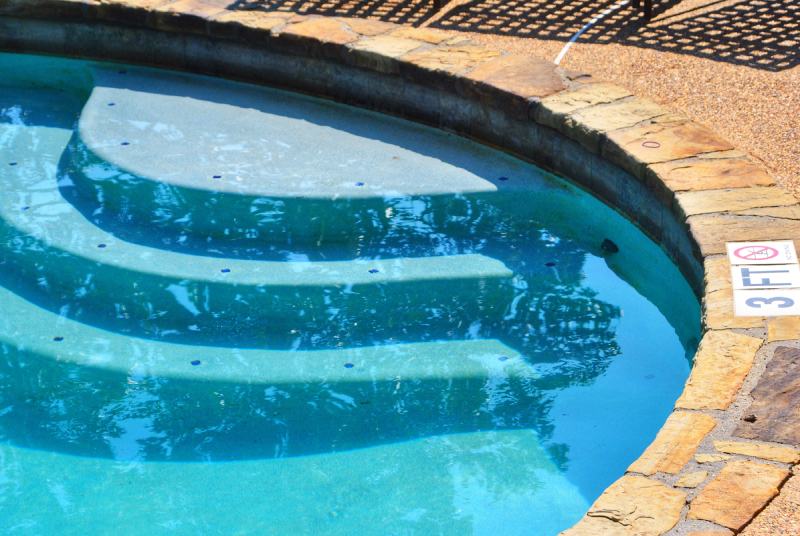
Signs Your Pool Filter is in Bad Condition
In addition to pressure gauge readings, other signs indicate that your pool filter may require servicing. Despite recent cleaning, persistent cloudy water, reduced water flow rate, and visible debris all indicate that a filter needs attention. Ignoring these signs can lead to further problems and compromised water quality.
How to Maintain Your Pool Filter: A Step-By-Step Guide
Proper maintenance is crucial to keep your pool filter operating at its best. While each filter type requires specific maintenance steps, general guidelines apply to all pool filter types. By following these steps, you can ensure the longevity and effectiveness of your pool filter system.
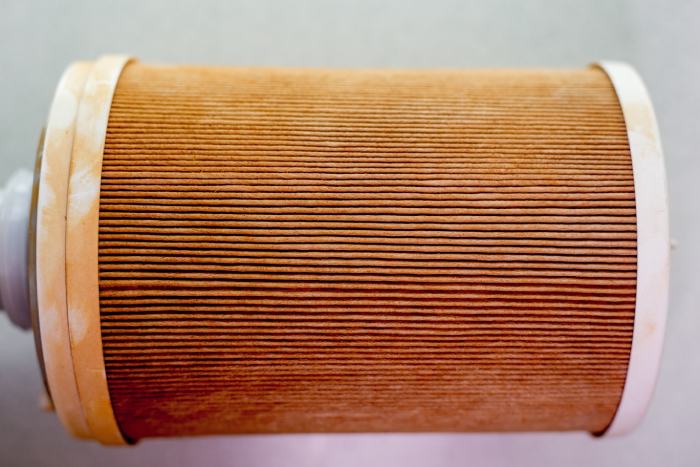
Essential Steps to Cleaning Pool Cartridge Filters
Cartridge filters require regular cleaning to remove accumulated debris and maintain optimal filtration. Here are the essential steps to clean your pool cartridge filter:
- Turn off the pool pump: Before starting any maintenance procedure, turn off the pump to prevent any accidents or damage.
- Remove the cartridge: Open the filter housing and carefully remove the cartridge. Please take note of its orientation to ensure proper reinstallation.
- Rinse the cartridge: Use a garden hose with a high-pressure nozzle to rinse off loose debris from the cartridge. Start from the top and work your way down to ensure thorough cleaning.
- Soak the cartridge: Prepare a cleaning solution by mixing a cartridge filter cleaner with water in a bucket or large container. Follow the manufacturer’s instructions for the correct ratio. Submerge the cartridge in the solution and let it soak for the recommended duration.
- Brush the cartridge: Use a soft brush to gently scrub the cartridge, paying attention to the pleats and crevices. This helps remove stubborn debris and buildup.
- Rinse again: After soaking and brushing, thoroughly rinse the cartridge with clean water to remove any remaining cleaning solution and loosened debris.
- Reinstall the cartridge: Carefully place it back into the filter housing once it is clean and dry, ensuring it is appropriately aligned.
- Turn on the pump: Close the filter housing and turn on the pool pump. Check for any leaks and ensure proper water flow.
How to Clean a DE Filter: Key Tips
Diatomaceous earth (DE) filters require regular cleaning and occasional recharge with fresh DE powder. Follow these steps to clean your DE filter effectively:
- Turn off the pool pump: As with any maintenance procedure, start by turning off the pool pump to ensure safety.
- Backwash the filter: Set the filter valve to the “Backwash” position. Turn on the pump and let it run for a few minutes or until the water in the sight glass runs clear.
- Rinse the filter: Set the filter valve to the “Rinse” position and run the pump for about 30 seconds. This step helps flush out any remaining debris and ensures proper filtration.
- Open the filter tank: Once the rinse cycle is complete, turn off the pump and carefully open the filter tank.
- Remove the grids: Inside the filter tank is a grid coated with DE powder. Remove the grids and place them on a clean surface.
- Clean the grids: Use a hose with moderate pressure to rinse off the DE powder and trapped debris from the grids. Avoid using excessive pressure, as it can damage the grids.
- Inspect the grids: While cleaning, inspect the grids for any signs of damage or wear. Replace any damaged grids to maintain filter efficiency.
- Recharge with DE powder: Before reassembling the filter, it’s time to recharge it with fresh DE powder. Follow the manufacturer’s instructions for the proper amount of DE powder.
- Reinstall the grids: Carefully place the clean and recharged grids back into the filter tank, ensuring they are correctly aligned.
- Close the filter tank: Close the filter tank securely to prevent any leaks.
- Turn on the pump: Turn on the pool pump and check for proper water flow and pressure. Monitor the pressure gauge to ensure it stays within the recommended range.
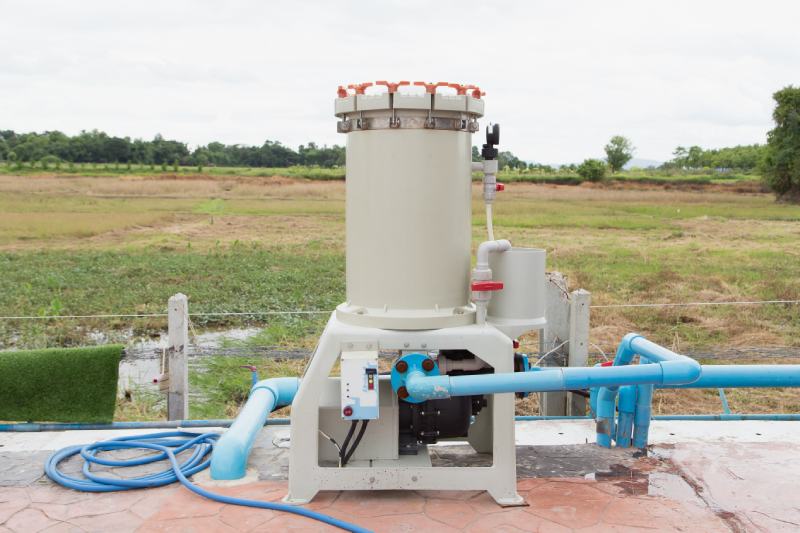
Maintaining Sand Pool Filters: What You Should Know
Sand filters are known for their low maintenance requirements. However, regular backwashing and occasional sand replacement are necessary to keep them operating efficiently. Follow these steps to maintain your sand pool filter:
- Turn off the pool pump: Always start by turning off the pool pump to ensure your safety during maintenance.
- Backwash the filter: Set the filter valve to the “Backwash” position. Turn on the pump and let it run for about 2-3 minutes or until the water in the sight glass appears clear.
- Rinse the filter: Switch the filter valve to the “Rinse” position and run the pump for about 30 seconds. This step flushes out any remaining debris and ensures proper filtration.
- Inspect the sand bed: Open the filter tank and inspect the sand bed for any signs of deterioration or channeling. If you notice any issues, it may be necessary to replace the sand.
- Replace the sand (if needed): If the sand bed is damaged or has become ineffective, it’s time to replace it. Follow the manufacturer’s instructions for the correct type and amount of sand to use.
- Reassemble the filter: After replacing the sand or ensuring its good condition, carefully reassemble the filter components, ensuring everything is aligned correctly and secured.
- Close the filter tank: Close the filter tank securely to prevent any leaks during operation.
- Turn on the pump: Turn on the pool pump and check for proper water flow and pressure. Monitor the pressure gauge to ensure it remains within the recommended range.
Understanding the Importance of Regular Filter Servicing
Regular servicing of your pool filter is essential to maintain its efficiency, extend its lifespan, and ensure a clean and safe swimming environment. You can read about the benefits of professional pool maintenance for more information.
The Ideal Frequency for Pool Filter Servicing
The frequency of pool filter servicing can vary based on factors such as pool usage, environmental conditions, and filter type. In general, it is recommended to service your pool filter every 1-2 weeks to prevent debris buildup and maintain optimal performance. However, you should also monitor the filter’s pressure gauge and visually inspect the water quality to determine if servicing is needed sooner.
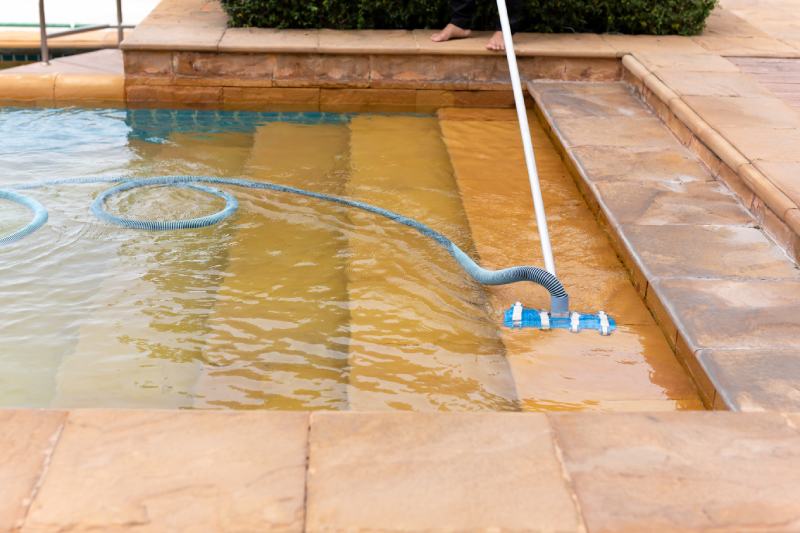
Consequences of Neglecting Regular Filter Servicing
Neglecting regular filter servicing can have several negative consequences:
- It can reduce filtration efficiency, resulting in poor water quality and an increased risk of algae growth.
- A neglected filter strains the pool pump, leading to higher energy consumption and potential pump damage.
- Unhygienic pool conditions can pose health risks to swimmers.
You can avoid these issues by prioritizing regular filter servicing and enjoying a clean and inviting pool.
Deep Cleaning Your Pool Filter: When and Why?
Over time, even with regular maintenance, your pool filter may require deep cleaning to restore its full functionality. A deep cleaning helps remove stubborn debris, oils, and mineral deposits that regular cleaning may not eliminate. To know more about deep cleaning and its process, you can read the complete guide to acid bath for pools.
Signs Your Filter Needs a Deep Clean
Several signs indicate that your filter requires a deep clean. If you notice persistent pressure increases, ongoing cloudiness despite regular maintenance, or inefficient water circulation, it’s time to consider a deep cleaning.
How to Deep Clean Your Pool Filter
The process of deep cleaning your pool filter may vary depending on the type of filter. It typically involves disassembling the filter, thoroughly cleaning all components, and inspecting for any damage or wear. Follow the manufacturer’s instructions or consult a professional to ensure you perform the deep cleaning correctly and safely.
Finn’s Pool Services: Your Trusted Partner for Pool Filter Cleaning
Finn’s Pool Services is a reliable, experienced pool maintenance and filter cleaning provider. Their expertise and professional approach can save you time and ensure your pool filter receives the necessary care.
Comprehensive Filter Cleaning Services by Finn’s Pool Services
Finn’s Services offers comprehensive filter cleaning services to ensure your pool filter is in top-notch condition. Their team of trained professionals understands the intricacies of different filter types and can provide expert maintenance tailored to your specific needs..
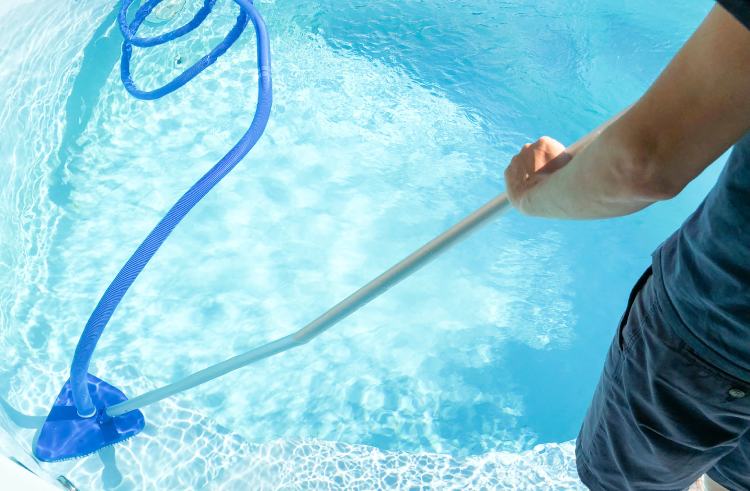
Ensuring Your Pool’s Health with Regular Filter Servicing by Finn’s
Regular filter servicing by Finn’s Pool Services is essential for maintaining the health of your pool. By entrusting your filter maintenance to their knowledgeable technicians, you can rest assured that your pool water will remain clean, clear, and safe for swimming. Finn’s Pool Services follows industry best practices and uses high-quality equipment and cleaning agents to ensure optimal results.
Contact Finn’s Pool Services Today for Your Pool Filter Maintenance Needs
Leaving it to the experts is a wise choice regarding pool filter maintenance. Contact Finn’s Pool Services today to schedule your next service and keep your pool in top-notch condition. Their friendly and professional team will handle all aspects of filter cleaning and maintenance, allowing you to enjoy a hassle-free and pristine swimming experience.
Understanding pool filters and maintenance ensures a clean and safe swimming environment. Pool filters play a vital role in removing impurities from the water, and regular maintenance is necessary to keep them functioning effectively.
By following the recommended steps for cleaning and servicing your pool filter, you can enjoy crystal-clear water and extend the lifespan of your filtration system. And if you prefer to leave the maintenance to the experts, Finn’s Pool Services offers comprehensive filter cleaning services to meet your needs. Don’t neglect the importance of pool filter maintenance—take the necessary steps to keep your pool sparkling clean and inviting for all to enjoy.

